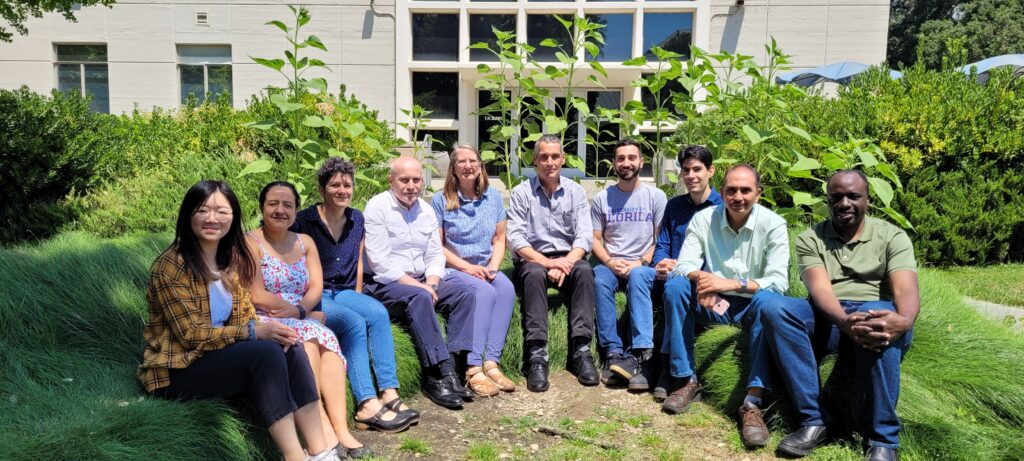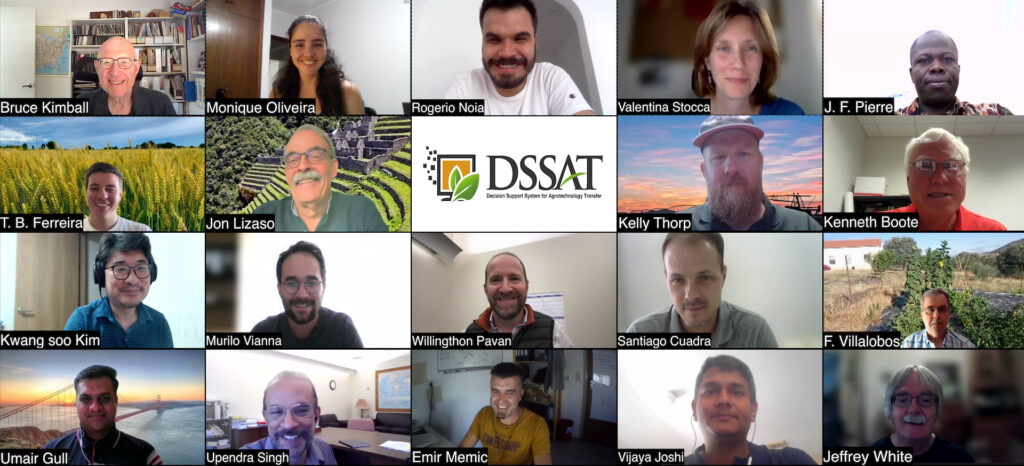
During the week of July 25-29, 2022, the 17th DSSAT Development Sprint was held in a “Hybrid” format based on the success of the prior DSSAT Development “Hybrid” Sprints.. The DSSAT Development Sprint was hosted by the Department of Land, Air, and Water Resources and the Department of Biological and Agricultural Engineering at the University of California Davis. In-person participants included two representatives from the University of California Davis, four representatives from the University of Florida, one representative from Texas A&M University, and one representative from CIMMYT, while there were around 20 on-line participants from the USA, Brazil, Mexico, Thailand, Canada, Germany, Spain, and Costa Rica. This was a five-day long crop modeling hackathon during which the participants collaborated on advancing the science of the crop models, data preparation and analytics, and the development and improvement of crop modeling tools and application programs.
Progress was made on the development of a conceptual inter-cropping model using components from the Cropping System Model (CSM); the incorporation of two new ET calculations based on the American Society for Civil Engineers (ASCE); the development of an automatic mow routine called “AutoMOW” for the forage cropping module; the addition of Guinea grass (Megathyrsus maximus) as a new crop using the forage module; the development of a new salinity module; a sensitivity analysis to study the impact of the soil fertility factor (SLPF) on crop growth, development, and yield; testing of all data sets distributed with DSSAT on input inconsistencies especially as it relates to missing dates; the addition of new experimental data for cabbage, soybean, and crop rotations; improvement of the water logging routines; and various other activities.
The next DSSAT Sprint is scheduled from January 16 through 20, 2023 at the University of Florida as a Hybrid meeting.

